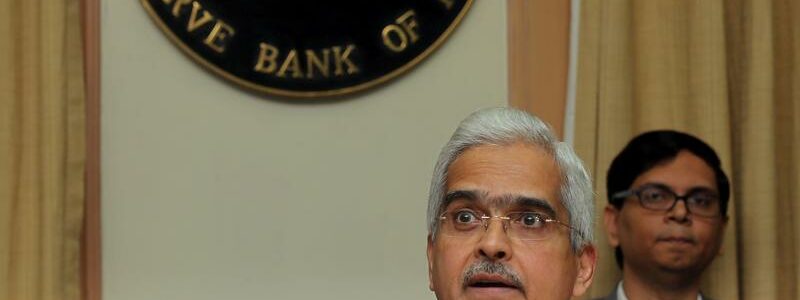
RBI's Das wants to support growth, keep inflation expectations anchored
MUMBAI (Reuters) – India’s central bank wants to anchor inflation expectations as it focuses on reviving economic growth, governor Shaktikanta Das told a local newspaper in an interview, and urged the government to look at lowering fuel taxes to ease price pressures.
“We are acutely conscious and sensitive to the fact that a hasty reversal of monetary policy stance or monetary policy approach can have serious consequences for the economic , recovery,” Das told the Business Standard in an interview published on Thursday.
“But we also want to anchor inflation expectations within the tolerance band and closer to the inflation target in the medium term,” he added.
India’s retail inflation is expected to have accelerated to a seven-month high in June on rising food and fuel prices, staying above the Reserve Bank of India’s comfort zone of 2%-6% for a second straight month, a Reuters poll showed.
The data is due on Monday.
Das said the RBI would like to keep inflation expectations anchored at around pre-pandemic levels at 4% as it reduces uncertainty for investors and supports growth.
“The government has taken certain supply side measures in recent weeks but more supply side measures are necessary and we are actually looking forward to more such measures, especially on taxes from both central and state governments,” Das said.
Late last month, India extended federal guarantees on bank loans to small businesses and the health and tourism sectors to help them through the COVID-19 pandemic, but didn’t provide any direct stimulus to boost demand or ease price pressures.
High taxes on domestic fuel combined with a surge in global crude oil prices have raised inflationary pressures.
Das said the U.S. Federal Reserve’s policy action will impact all economies including India.
He also cautioned about the risks of volatility in capital flows as ultra-accommodative policies of the advanced economies have kept global liquidity flush and said emerging economies must build their own safety nets.
India’s forex reserves at $609 billion are adequate to fund over 15 months of imports and covers more than the country’s overall external debt, Das said.
“Our current level of reserves gives us confidence, but we cannot be complacent.”
Source: Read Full Article